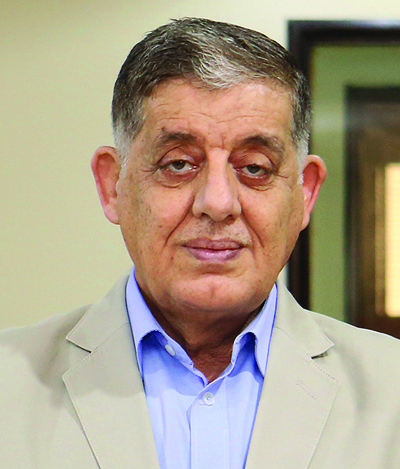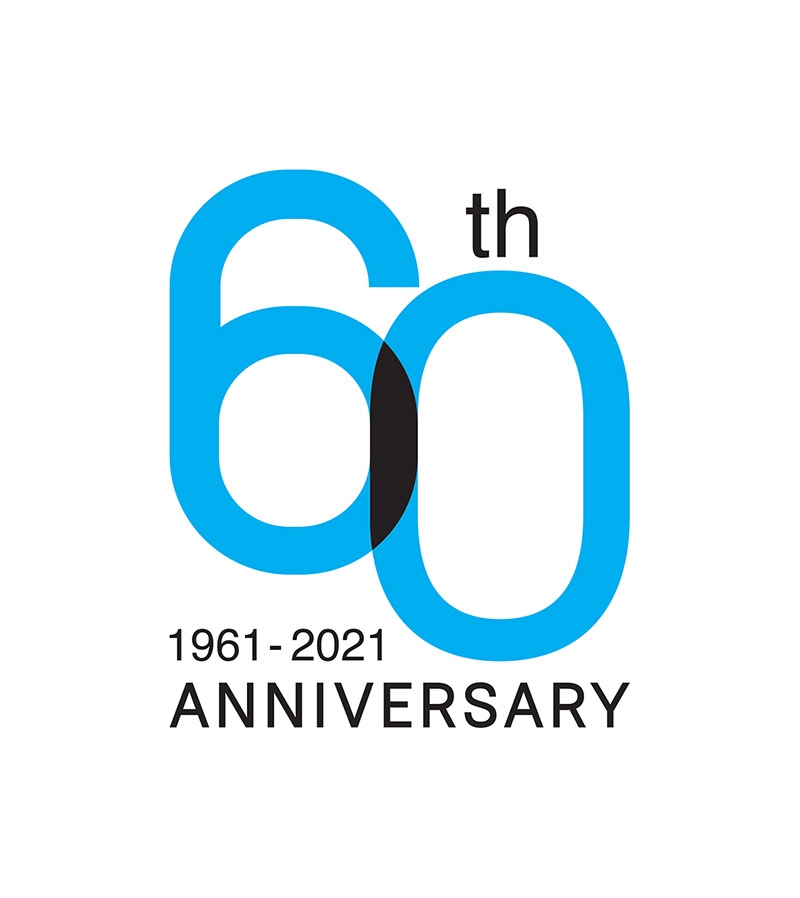
After the liberation of the country, we returned to the newspaper, which was in ruins. The offices needed a lot of work to return to working order. Since then I took over the management of the computer department, until the present time. Due to the efforts of the late Mr Yousuf Saleh Al-Alyan and his wise leadership, the computer department went completely online, from the newsfeeds to the printing of the pages.
Madame Badriya's efforts and her guidance gave me the necessary experience to develop myself and stay abreast with modern technology. The newspaper printing process when I started was a lot different than now. It was very tough working with the intertype machines, and making the pages took too much time. The newspaper pages were prepared using molten lead - it was hard work, especially if there were mistakes that had to be corrected.
We then moved on to using bromides and printing them on computers. They were then taken to the production department to be photographed to make plates for printing. Later, the process was completely computerized to produce the newspaper in the least amount of time.
All credit goes to the late Mr Yousuf Al-Alyan, after God, for what I have achieved till now, as he was like a father and teacher to me. His interest in the latest technology and training to develop the computer department motivated me. Whenever I felt tired or sick, he urged me to take care of my health. I remember an incident the night before he passed away. I was feeling dizzy and fatigued. He advised me to go to the doctor and not neglect myself, so I went. In the morning, I learned he had passed away. This was a great shock to me, because I had spoken to him only a few hours ago.
Likewise, Madam Badriya takes the credit for what we have achieved, and for her support and guidance. Mr Abd Al-Rahman Al-Alyan then took over the administration and developed the newspaper. He was educated in Britain and had an influential impact on Kuwait Times.

Abdellatif Sharaa
I got the opportunity to join Kuwait Times when I came to Kuwait in 1986. I worked in a small room with four experienced translators. They told me to start reading the Arabic papers and translate them to English, and then compare the translation with the original text. I asked myself, am I back to grade one?! But believe me - that was one of the best pieces of advice I have received.
One of the first "shocks" I got was when a file that had more than 500 A4 pages was placed in front of me. I was told to go through it - the minutes of the parliament session that day - look for important news, translate it and give them to the front-page editor. That night was very long, and I left the paper at 2:00 am. It was not easy!
Kuwait Times used to have Urdu and Malayalam sections, and the editors of those sections also hovered over my head for stories. That put a lot of pressure on me, and one night I showed it, without knowing that the founder of the paper Yousuf Al-Alyan (Abu Tareq), may Allah bless his soul, was present. He called me into his office, cracked a few jokes, then said: "Relax, my boy! The job has to be done, but do it on your own terms." That was his way of telling me the job had to be done - period!
When Iraq invaded Kuwait, I went to the paper that day - August 2, 1990 - and Abu Tareq was there. He spoke about what took place, adding that it will not last long, and will end one way or another. How true his words were! Kuwait was liberated in February the next year. I was out of Kuwait for around two years after the invasion. After I returned, I rejoined Kuwait Times. There were new faces, but the system remained the same!
The managing editor told me to keep my sentences short. He used to review the stories and wanted to know exactly what was behind what was said, especially when it came to parliament and Cabinet reports, adding to the pressure on me. Many are the stories that can be told about life in the newsroom, but here is a final one for now.
There were a few times when Iraqi troops amassed at the borders, and once things were believed to be credible, so allied troops got prepared and the atmosphere was seething. Kuwait's information minister at the time, the late Sheikh Saud Nasser Al-Sabah, called a sudden press conference. Without hesitation, Abu Tareq gave me no chance to say yes or no and took me with him. He made me write the story, which I really liked later as some quotes were taken from it. After almost 35 years with the paper, I must say Happy Birthday Kuwait Times, and keep going!

Antonio Coelho
My journey at Kuwait Times started in May 1990. It was interesting one, and I got to learn how a newsroom works. The pressure to meet deadlines and the busy schedule doesn't make me think of anything else during my working hours. I started as a proofreader - I used to come to Kuwait Times at 3 pm and end up leaving at 2 am the next day. We used to get the news from agencies via a telex printer, where we had to separate the business, sports, international and local reports.
Editors used to pick up the main stories, lay out the page and give it to the composers. The stories then came to us for proofreading. After marking the errors, we used to give it back to the typists. The page was set manually by the page-makers, who used to paste the text and pictures and send it to the montage department for making plates.
After the 1990 invasion of Kuwait, I rejoined Kuwait Times in September 1991. We resumed with a few staff with 12 pages, which steadily increased. I used to come in the afternoon and finish by 3 am. Since there were no buses and few cars on the road, I used to sleep in the reception area, then catch the first bus at 5 am to go home. After the invasion, we couldn't know whether it was day or night as the sky was covered with smog from burning oil wells set alight by the retreating Iraqi troops.
As the years flew by, I was promoted as an editor. Things slowly changed from manual work to computers, where news flowed on our screens and not by telex. As an editor, I did almost all sections - from local and sports to business, international and special supplements. Things got even better when we switched to working online. I look back with pride working with Kuwait Times in the past and also in the present.
At Kuwait Times we all work like a family - we care for and respect each other. The atmosphere is sociable. Our Founder and Publisher, the late Mr Yousuf Al-Alyan, was humble and friendly, always greeting everyone, from the teaboys to the editors. I am lucky to have worked with the Alyan family for more than 30 years. They treat everyone equally. My best wishes to Kuwait Times for celebrating 60 years this year and also to our editor-in-chief, managing editor and all the staff.




